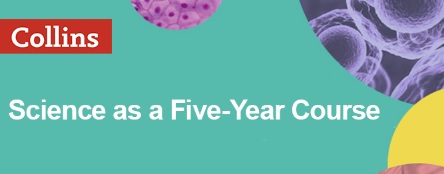One of the issues that’s exercising quite a few minds in science education at the moment is how to cover the content in the new GCSE specifications in the time available. Many people are, very understandably, flipping through not only the amount but thinking about the depth of the material and trying to work out how to fit it all in. Time saved by the demise of Controlled Assessments then vanishes into running stipulated practicals, especially when the range of types of questions an examiner might ask is factored in. And then there’s the maths.
Increasingly it’s becoming clear that planning science as a five year course is not only desirable but essential. If KS3 and GCSE are planned and delivered as separate courses with little explicit carry through it stores up too much to be done in KS4. It’s not just a case of eliminating duplication, though that’s a good start, but rather one of designing KS3 to build students up so that the GCSE course is, well, less of a challenge. Rather in the style of oven ready turkeys, we need to be thinking about GCSE ready students. Actually, that’s not a great analogy but you see what I mean. What can we do to get our students prepared?
Getting the content right is clearly part of it. In science we have ‘key ideas’ which form the cornerstones of conceptual thinking at GCSE. These ideas are built up in GCSE courses to a level that younger students in many cases would struggle to comprehend but that doesn’t mean we can’t lay foundations. For example, it’s a great idea to address the idea of a resultant force in KS3. That means that when it comes to understanding Newton’s laws of motion at GCSE we’re well off the starting blocks.
Similarly, when it comes to the use of practical work, there’s a strong argument for not only getting students used to a range of ways of investigating ideas but for integrating this with the teaching of key concepts. It’s worth remembering that examiners will expect candidates to be familiar with the use of basic laboratory equipment and not just in the context of the stipulated experiments (flip through the sample assessment materials from awarding organisations to see questions that do this).
Extended writing needs a role too. It’s a big ask at GCSE to have to do a lot of development work regarding students’ capacity to produce extended written responses. If students have done little more at KS3 than construct the occasional sentence teachers can find themselves having to do some very focused teaching about producing high quality longer responses. Sure, that’s going to happen to a certain extent but we’re in the process of ‘shaving the odds’ and this is one where we can do some useful foundation work.
At Collins we’ve done some work on planning this bigger picture. As well as a series of publications that help teachers develop a range of skills and ideas in each key stage there are some charts you may find helpful. This includes suggesting a range of Working Scientifically skills that can be focused on at KS3 and showing how these track through to the requirements at GCSE. To find out more, go to https://collins.co.uk/page/Science5YrCourse.
Ed Walsh



